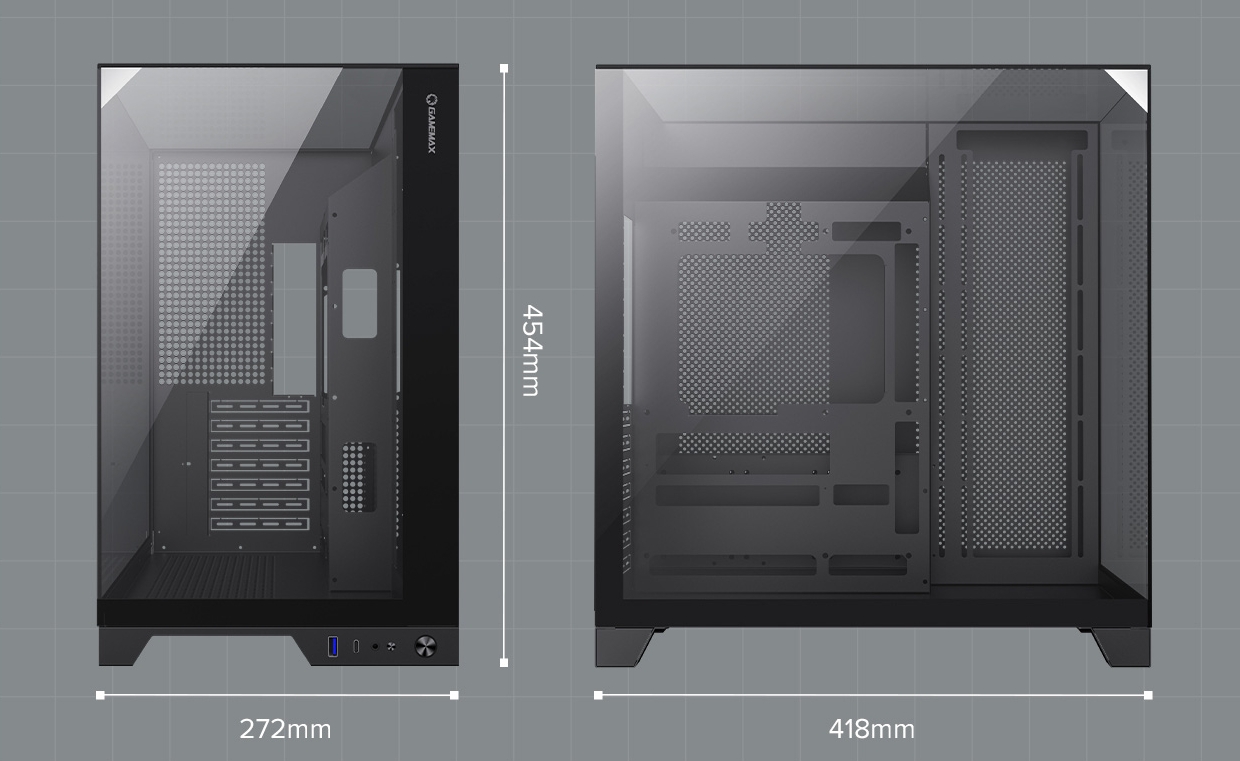When choosing a PC case, durability is one of the key factors that enthusiasts and professionals alike consider. The material of the case plays a vital role in determining its longevity, heat dissipation, and overall aesthetic. In this guide, we’ll explore the most common materials used in PC cases, their properties, and which one stands out as the most durable.
Steel is one of the most widely used materials for PC cases, particularly SECC (Steel Electro-Galvanized Cold Rolled Coil). It’s prized for its strength, durability, and ability to withstand external impacts.
Pros:
High structural strength
Resistant to deformation
Provides excellent support for heavy components
Effective in blocking electromagnetic interference (EMI)
Cons:
Heavier than other materials
Less stylish or sleek compared to aluminum or tempered glass
Durability: Steel cases are highly durable and can protect internal components from external physical damage, making it one of the most reliable materials for long-term use.

Aluminum is often associated with premium PC cases due to its lightweight nature and sleek appearance. It’s used in high-end cases for both gaming and professional setups.
Pros:
Lightweight, making the case easier to move or transport
Corrosion-resistant, ensuring long-term durability in various environments
Stylish and modern aesthetics
Cons:
Less rigid than steel, more prone to dents or bending under heavy pressure
Generally more expensive than steel
Durability: While aluminum is durable and resistant to corrosion, it’s less resistant to physical damage than steel. However, its lightweight nature and appearance make it a popular choice for users who prioritize portability and aesthetics.
Tempered glass has become a popular material in modern PC cases, especially in designs that highlight internal components with RGB lighting.
Pros:
Aesthetic appeal, especially for showcasing internal builds
Scratch-resistant and more durable than standard glass
Heat-resistant, maintaining the internal temperature of the case
Cons:
Heavier than plastic or aluminum
Fragile compared to steel and aluminum, prone to shattering under strong impact
Durability: Tempered glass is durable against scratches and provides a premium look but can shatter under extreme force. It’s typically combined with steel or aluminum frames to offer protection and support.

Acrylonitrile Butadiene Styrene (ABS) plastic is commonly used in budget-friendly PC cases. It’s usually combined with other materials like steel or aluminum for certain parts of the case.
Pros:
Lightweight and cost-effective
Flexible and less prone to cracks or shattering
Easy to mold into various designs
Cons:
Less rigid and strong compared to steel or aluminum
Prone to scratches and may degrade over time due to UV exposure
Durability: Plastic cases are not the most durable option, but they offer affordability and flexibility. However, they are best suited for users with light use requirements or those who prioritize budget over durability.
Occasionally, you’ll find cases made of composite materials or exotic alloys that aim to combine the best properties of different materials. However, these are rare and often found in highly specialized or custom-built cases.

From a durability standpoint, steel is the most robust material for PC cases. Its ability to resist physical damage, EMI protection, and structural strength make it ideal for protecting internal components. For users looking for a case that will last for years and withstand physical stress, steel is the top choice.
However, if you’re looking for a balance between durability and aesthetics, aluminum and tempered glass cases offer excellent options. While they may not be as impact-resistant as steel, their lighter weight and stylish designs make them attractive for users who value appearance without compromising too much on durability.
For budget-conscious users, plastic cases provide decent protection but should be paired with internal steel or aluminum framing for added strength.
Choosing the most durable PC case material depends on your specific needs. Steel is the most rugged and long-lasting option, while aluminum and tempered glass provide a sleek, modern look with decent durability. Plastic cases are lightweight and affordable but less durable in the long run. Consider your priorities—whether it’s protection, aesthetics, or portability—when selecting the right material for your PC case.